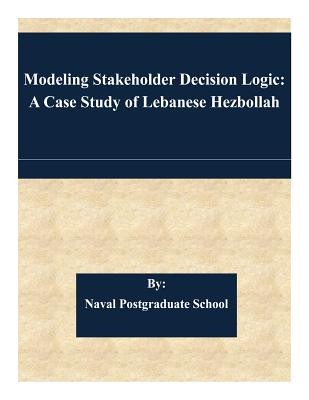
- Išsiųsime per 10–14 d.d.
- Autorius: Naval Postgraduate School
- Leidėjas: CreateSpace Independent Publishing Platform
- Metai: 2015
- Puslapiai: 168
- ISBN-10: 1508939373
- ISBN-13: 9781508939375
- Formatas: 21.6 x 28 x 0.9 cm, minkšti viršeliai
- Kalba: Anglų
- Extra -15 % nuolaida šiai knygai su kodu: ENG15
Atsiliepimai
Aprašymas
This research develops a methodology to analyze stakeholder-decision logic in dynamic, multi-agent political systems. The backdrop for this study is Lebanese Hezbollah decision making in a system including Iran, Syria, Israel, and the U.S. A thorough historical review of the Middle East provides the foundation for accurate definition of each stakeholder's interests and feasible actions. Additionally, the historical review provides the basis for specifying model relationships and initial, notional probability data to inform the model. A conceptual model is then developed representing the system using influence diagrams. This conceptual model is adapted to enable implementation of two models, one for each research question posed by the Unified Combatant Command. To solve these models, a Java application was developed and described in detail. The application provides the user with the capability to manipulate the model and inputs to suit their analytic needs and to evaluate the efficacy of model variables. User interface and convenient model diagnostics, together, provide the Unified Combatant Command with the desired decision support complement to their current analytic techniques. Finally, several important insights are presented relating to modeling methodology and to the specific decision-making logic of Hezbollah and other stakeholders in this system.EXTRA 15 % nuolaida su kodu: ENG15
Akcija baigiasi už 23:45:38
Nuolaidos kodas galioja perkant nuo 10 €. Nuolaidos nesumuojamos.

- Autorius: Naval Postgraduate School
- Leidėjas: CreateSpace Independent Publishing Platform
- Metai: 2015
- Puslapiai: 168
- ISBN-10: 1508939373
- ISBN-13: 9781508939375
- Formatas: 21.6 x 28 x 0.9 cm, minkšti viršeliai
- Kalba: Anglų




Atsiliepimai